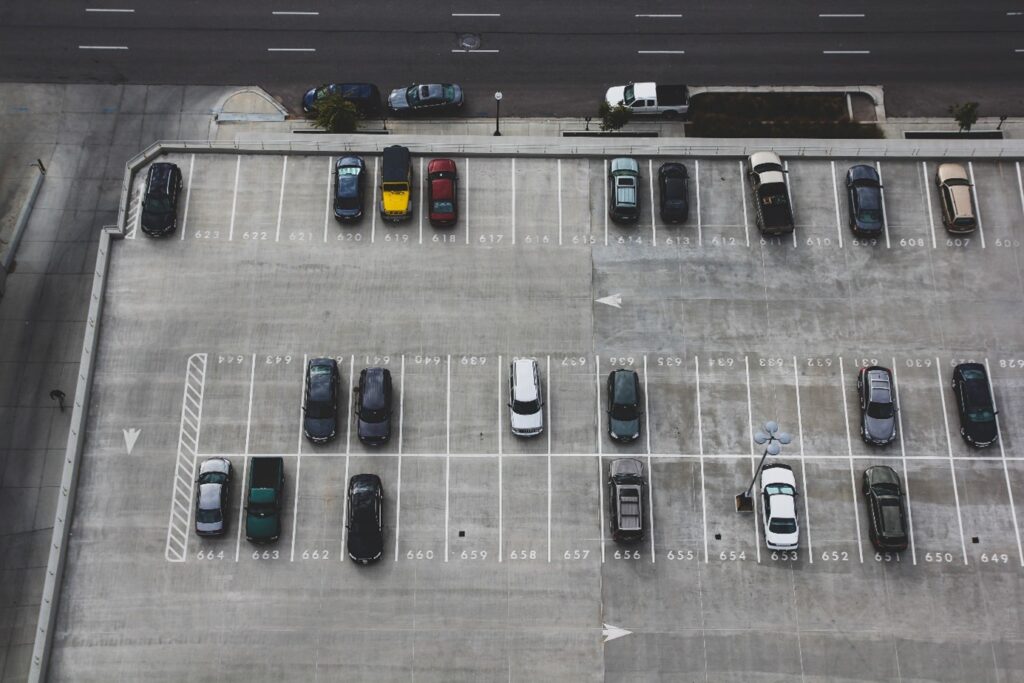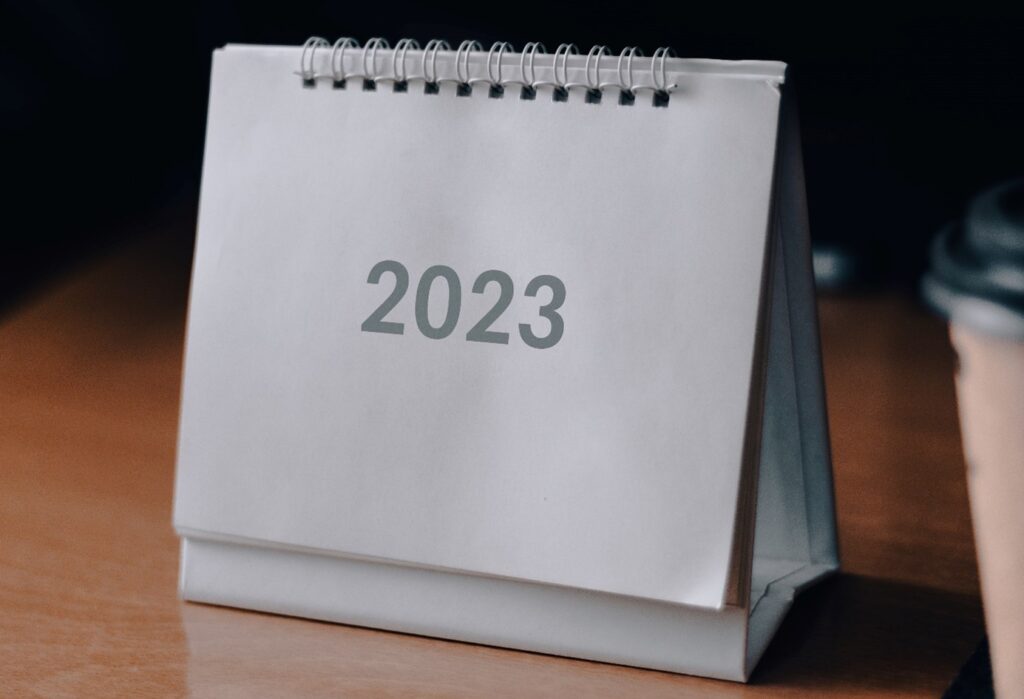
FROM THE ATO
Hiring contractors
You have a choice between hiring contractors and employees – both are legitimate as long as the conditions of the working contract match the worker’s classification.
It’s important to understand the difference between employees and independent contractors because:
- it changes your obligations for paying and reporting tax, superannuation and other entitlements for your workers; and
- penalties and charges may apply if you incorrectly classify an employee as a contractor and fail to meet the relevant obligations or entitlements for that worker.
Although you generally don’t need to make super guarantee contributions for independent contractors, you may be required to make contributions for a contractor where the contract engaging them is wholly or principally for their labour.
If they’re registered for GST, you will need to pay the appropriate GST to them for the services or work they provide to your business.
PAYG withholding – employee or contractor?
As noted above, it is important to understand the difference between employees and independent contractors.
Last year the High Court handed down 2 important decisions on whether a worker is an employee or an independent contractor. The High Court placed particular importance on the terms of any valid written contract between the individual providing services and the entity using those services.
The High Court’s decision has prompted the ATO to issue a draft ruling explaining when an individual is an “employee” for the purposes of the PAYG withholding rules. It is important to note that the label attached to the arrangement between the parties – employee or contractor – is not relevant. The previous Taxation Ruling on this issue has been withdrawn.
The ATO also issued a draft a Practical Compliance Guideline (PCG) outlining its compliance approach for businesses that engage workers and classify them as employees or independent contractors. It sets out how the ATO allocates compliance resources, based on the risk associated with the classification.
So, this may be a good time to check with your tax adviser whether individuals providing services to your business are genuine independent contractors or are, in fact, employees.
Employee for super guarantee purposes?
It is also important to know for super guarantee purposes whether an individual providing services to your business is an employee.
You pay super on behalf of an employee regardless of whether they:
- are full-time, part-time or casual – working holidaymakers are included;
- receive a super pension or annuity while still working; or
- are a company director.
There was an important change last year (from 1 July 2022) – you now have to pay super for employees who are paid less than $450 in a month.
The rules for determining whether someone is an “employee” for super guarantee purposes are a bit different to the rules that are relevant for PAYG withholding purposes. Thus, the ATO has said that the draft ruling mentioned above will not be binding on them for super guarantee purposes.

ATO announces changes to working from home deductions
The Australian Taxation Office (ATO) has refreshed the way that taxpayers claim deductions for costs incurred when working from home. The changes better reflect contemporary working from home arrangements.
Assistant Commissioner Tim Loh explained that taxpayers can choose one of two methods to claim working from home deductions: either the “actual cost” or “fixed rate” method. Only the fixed rate method is changing.
The revised fixed rate method applies from 1 July 2022 and can be used when taxpayers are working out deductions for their 2022–23 income tax returns.
‘First things first, make sure you are eligible to claim working from home expenses. To claim your working from home expenses, you must be working from home to fulfil your employment duties, not just carrying out minimal tasks, such as occasionally checking emails or taking calls. Also, you must incur additional expenses as a result of working from home.’
‘No matter which method you use, make sure to keep records. This will give you more flexibility to choose the method that gives you the best deduction at tax time depending on your circumstances.’
Mr Loh said these changes provide benefits for those using the revised fixed rate in 2022–23.
‘Items that are difficult and tedious for everyday Aussies to calculate actual work-use, like phone, internet and electricity expenses, are included in the revised rate. Assets and equipment that typically give taxpayers a bigger deduction, such as technological items and office furniture, are not included in the revised rate and need to be claimed separately.’
‘Another benefit is that you no longer need a dedicated home office to use the fixed rate method.’
Mr Loh reassured taxpayers who haven’t kept records so far this income year that transitional arrangements are in place for 2022-23.
‘From 1 July 2022 to 28 February 2023, we’ll accept a record which represents the total number of hours worked from home (for example a 4 week diary). From 1 March 2023 onwards, taxpayers will need to record the total number of hours they work from home.’
‘And remember, you can’t claim for things like coffee, tea, milk and other general household items, even if your employer may provide these kinds of things for you at work.’
Revised fixed rate method
The revised fixed rate method can be used from the 2022–23 income year onwards. The changes are:
Rate
The cents per work hour has increased from 52 cents to 67 cents.
What’s covered by the rate
The revised fixed rate of 67 cents per work hour covers energy expenses (electricity and gas), phone usage (mobile and home), internet, stationery, and computer consumables. No additional deduction for any expenses covered by the rate can be claimed if you use this method.
What can be claimed separately
- The decline in value of assets used while working from home, such as computers and office furniture.
- The repairs and maintenance of these assets.
- The costs associated with cleaning a dedicated home office.
Home office
The revised fixed rate method doesn’t require taxpayers to have a dedicated home office space to claim working from home expenses.
Record keeping
- Taxpayers need to keep a record of all the hours worked from home for the entire income year – the ATO won’t accept estimates, or a 4-week representative diary or similar document under this method from 1 March 2023.
- Records of hours worked from home can be in any form provided they are kept as they occur, for example, timesheets, rosters, logs of time spent accessing employer or business systems, or a diary for the full year.
- Records must be kept for each expense taxpayers have incurred which is covered by the fixed rate per hour (for example, if taxpayers use their phone and electricity when working from home, they must keep one bill for each of these expenses).
Actual cost method
The actual cost method hasn’t changed. Taxpayers can claim the actual work-related portion of all running expenses.
This includes keeping detailed records for all the working from home expenses being claimed, including:
- all receipts, bills and other similar documents to show taxpayers have incurred the expenses, a record of the number of hours worked from home during the income year (either the actual hours or a diary or similar document kept for a representative 4-week period to show the usual pattern of working at home).
- a record of how taxpayers have calculated the work-related and private portion of their expenses (for example, a diary or similar document kept for a representative 4-week period to show the usual pattern of work-related use of a depreciating asset such as a laptop).
The ATO is reminding taxpayers that if they are claiming their actual working from home expenses, they can’t claim a deduction for expenses which have already been reimbursed by their employer.

Are you still using your ABN?
Your ABN may be flagged for cancellation if you haven’t reported business activity in your tax return, or there are no signs of business activity in other lodgements or third-party information.
If the ATO identifies your ABN as inactive, they will contact you by email, letter or SMS.
If you:
- still require your ABN, the ATO will explain what you need to do to keep it;
- are no longer in business, no action is required and the ATO will cancel your ABN.
If your ABN has been cancelled and you are still entitled to it, you’ll need to reapply.
You can reapply for the same ABN unless your business structure has changed, for example, if you were a sole trader and you now operate the business through a company.
All ABN holders have a responsibility to keep their business details up to date. This includes cancelling your ABN if your business is no longer operating. You must tell the ATO of any changes to your business details within 28 days of the change.
Are you changing your business structure?
If you are changing your business structure, for example from a sole trader to a company, you will need a new ABN. Other situations where you need to cancel your ABN and apply for a new ABN include where changing from:
- individual/sole trader to partnership or trust;
- individual/sole trader to company or trust
- partnership to company or trust.
You must ensure that your ABN details are updated on your tax invoices. This is essential as your ABN is used to:
- identify your business identity to others when ordering and invoicing; and
- claim GST credits.
Other businesses and entities must withhold payment at the top tax rate if the ABN quoted on the invoice is incorrect or the details do not match up.
Remember to ensure that you update your GST registration details whenever you get a new ABN.
Received a business support grant?
You may have received a business support grant recently to help your business through tough times. If so, it is important to know whether you will have to pay tax on the grant.
The basic principle is that business grants are treated as assessable income. However, some grants are not taxable, which means you don’t need to include them in your business’ tax return if the relevant eligibility requirements are met.
COVID-19
A COVID-19 business grant or support program payment you received in the 2020–21 or 2021–22 financial year from a State or Territory government, or in the 2021–22 financial year from the Commonwealth Government, will not be taxable if:
- the payment is received under an eligible program – the ATO has published on its website a list of eligible grants and support programs (ref QC 66889); and
- you carried on a business and have an aggregated turnover of less than $50 million in either the income year the payment was received or the previous income year.
If you included a grant in your tax return that is not taxable, you can amend your return.
Storms and floods
Small businesses and primary producers affected by storms and floods may be eligible to receive special disaster recovery grants.
Grants may be administered by a State or Territory government or the Commonwealth Government.
Bushfires
2019–2020 Bushfires Relief Recovery payments and benefits provided by any level of government, including local governing bodies, are not taxable.
Deductions
Remember, you can only claim deductions for expenses associated with non-taxable grants if they relate directly to earning assessable income. You can’t claim expenses related to obtaining the grant, such as accountant’s fees.

Do you provide car parking for employees?
If you provide car parking for your employees, you may have to pay fringe benefits tax (FBT) on those benefits.
A car parking fringe benefit will generally arise if an employer provides car parking to an employee and various conditions are satisfied, including:
- the car is parked at premises owned or leased by, or otherwise under the control of, the provider (usually the employer);
- the car is parked for a total of more than 4 hours between 7am and 7pm on any day of the week;
- the car is parked at or near the employee’s primary place of employment on that day – in one case a car park that was almost 2 km from the primary place of employment was considered not to be near the place of employment;
- the car is used by the employee to travel between home and work (or work and home) at least once on that day;
- there is a commercial parking station that charges a fee for all-day parking within one kilometre of the premises on which the car is parked; and
- at the beginning of the FBT year (1 April 2022 for the current FBT year), the commercial parking station fee for all-day parking was, generally speaking, more than the car parking threshold ($9.72 for the current FBT year).
“All-day parking” basically means parking for a continuous period of 6 hours or more during the period from just after 7 am to just before 7 pm (on the same day). So a fee charged after 1 pm is not a fee for “all-day parking”, as there cannot be a continuous period of at least 6 hours ending before 7.00 pm.
Exemptions
Car parking benefits are exempt from FBT where the benefits are provided:
- by employers who meet the conditions of the small business car parking benefits exemption (see below);
- by certain research, education, religious and charitable institutions; and
- for employees with a disability (irrespective of the type of employer).
The small business car parking benefits exemption applies if the following conditions are satisfied:
- the parking is not provided in a commercial car park; and
- for the last income year before the relevant FBT year, either the employer’s gross total income was less than $50 million or their turnover was less than $50 million.
This exemption is not available to listed public companies, subsidiaries of listed public companies and government bodies.
Shortfall interest charge
If your income tax assessment is amended and your tax liability is increased (in other words, there is a tax shortfall), the ATO will apply the shortfall interest charge (SIC) on a daily compounding basis to the shortfall.
The SIC is applied for the period from the due date for payment of the earlier, understated assessment until the day before the ATO issues the notice of amended assessment.
The SIC rate is updated quarterly using a formula set by law. For example, the SIC rate for the period from 1 January to 31 March 2023 is 6.06% (the daily rate is 0.01660274%). The SIC rate is 4 percentage points lower than the general interest charge (GIC). The GIC is payable when a tax bill is not paid on time or an amount withheld from a payment is not paid to the ATO.
The due date for payment of the SIC (and the extra tax payable under the amended assessment) is 21 days after the day the ATO issues the notice of the amended assessment. Once the due date has passed, the GIC will apply automatically to any unpaid tax and SIC.
The ATO has the power to remit an amount of SIC in extenuating circumstances, for example, if the ATO contributes to an error that leads to a shortfall, if the shortfall amount is paid before the notice of amended assessment issues or if a delay in supplying documents or other information is directly attributable to a natural disaster such as a flood.
If the ATO refuses to remit the SIC you have objection and review rights, but only if the SIC is more than 20% of the tax shortfall amount.

Protect your business from cyber scams
The ATO has warned small businesses about business email compromise scams.
Cybercriminals send fraudulent emails posing as a legitimate business contact or staff member. They typically request a change in bank account details for a deposit, wages or invoice payment. Victims then unknowingly send money to the cybercriminal.
These fraudulent emails may come from hacked email accounts, or cybercriminals might register domain names that are similar to legitimate companies.
The ATO advises that you can protect yourself, and the reputation of your business, by taking a few simple steps:
- verify payment details. If you hold sensitive financial records, ensure you confirm the identity of anyone who requests changes to their information;
- alert your staff. Train your employees to identify suspicious requests or emails that may link to fake websites built to capture passwords; and
- secure your email account. Use multi-factor authentication or, if this is not possible, a strong unique passphrase that would be difficult to hack.
Taxpayers have also been advised to be wary of scammers impersonating ATO officers on Twitter, Facebook and other social media platforms.
Scammers scan public conversations on social media, where taxpayers ask questions or make complaints about the ATO. The scammers then use a fake ATO profile to contact the taxpayer directly with an offer to help resolve a complaint or follow up on a comment. Once trust is established, the scammers then ask the taxpayer to click on a link or provide personal details.
The ATO is working with social media platforms and other government agencies to address this.

Phoenix Taskforce – targeting dodgy businesses
The Phoenix Taskforce, which was established in 2014, brings federal, state and territory agencies together to combat illegal phoenix activity.
Illegal phoenix operators deliberately liquidate, wind up, or abandon their business to avoid paying their debts. Just like the mythological phoenix, these “dodgy individuals” often rise up with a near-identical business and restart the process.
As well as short-changing employees, suppliers and sub-contractors, illegal phoenix operators can put honest businesses at a competitive disadvantage. They cost businesses, employees, and the community an estimated $2.85 billion to $5.13 billion a year.
The Phoenix Taskforce takes action against phoenix operators by:
- working to disrupt their business model and make it financially unviable;
- removing their ability to operate;
- applying financial penalties; and
- prosecuting the worst offenders.
The most serious cases are referred to the Serious Financial Crime Taskforce (SFCT).
The director identification number initiative will:
- help prevent the use of false and fraudulent director identities; and
- make it easier for government regulators to trace directors’ relationships with companies over time to help better identify and eliminate director involvement in unlawful activity.

WHAT HAS PARLIAMENT DONE?
FBT exemption for electric vehicles
In our September tax update, we told you about the fringe benefits tax (FBT) exemption for electric and other low emission cars used by employees for private use. At the time, this measure was being considered by the Parliament. It is now law.
During its progress through Parliament, the Government agreed to phase out the FBT exemption for plug-in hybrid electric cars. As a result, the exemption for such cars will cease from 1 April 2025 (the start of the 2025–26 FBT), unless the relevant car is made available to the employee before that date.
Failing to keep correct records
From 12 March 2023, the ATO will be able to issue a “tax-records education direction” if your business has failed to comply with its tax-related record-keeping obligations (subject to certain exceptions). A tax-records education direction will require you to complete an approved tax record-keeping course. This will be an alternative to the existing administrative penalties.
You can nominate an appropriate person within the business to complete the course.
You will have to provide the ATO with evidence that the course was completed.
A tax-records education direction cannot be issued where the failure to keep records does not give rise to an administrative penalty. These include certain FBT statutory evidentiary records and records substantiating certain work and business expenses.
ATO decisions affecting small business
The Administrative Appeals Tribunal (AAT) can now order that certain decisions of the ATO affecting small business be stayed pending the outcome of the AAT’s review of the decision. The AAT can also vary or revoke such an order.
For example, if your business is challenging an income tax assessment before the AAT, you can apply to the Small Business Taxation Division of the AAT for an order staying, or otherwise affecting, the operation or implementation of the assessment.
This measure applies to businesses with an annual aggregated turnover under $10 million.
Note that the Government has proposed to abolish the AAT and replace it with a new federal administrative review body.

KEY TAX DATES
| Date | Obligation |
| 21 Feb 2023 | January 2023 monthly BAS due |
| 28 Feb 2023 | December 2022 quarterly BAS due Pay December 2022 quarterly instalment notice Annual GST return due (if no income tax return due) December 2022 SG charge statement due (if required) SMSF 2021–22 annual return due (unless first return or late with return for previous financial year) |
| 21 Mar 2023 | February 2023 monthly BAS due |
| 21 Apr 2023 | March 2023 monthly BAS due |
| 28 Apr 2023 | March 2023 quarterly BAS due Pay March 2023 quarterly instalment notice Employee super guarantee contributions due |
| 21 May 2023* | April 2023 monthly BAS due Lodge and pay annual FBT return (if your business lodges one) |
| 28 May 2023* | March 2023 SG charge statement due (if required) |
*The next business day will apply.
